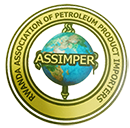Petroleum Overview
Rwanda has an ambitious target of increasing its strategic storage capacity to an equivalent of 4 months from 1.5 months of consumption requirements, the target being to have a storage capacity of 150 million litres by 2017. Currently the total fuel storage capacity splits among 5 depots in Rwanda which is 31,700 M3. Due this reason, the GoR has been encouraging the private sector to consider investing in oil storage depots to cater for the growing demand and supply security at times of necessity given the uncertainty surrounding the supply which comes exclusively overland.
Petrol service stations
Petroleum products account for 11% of the primary energy use in Rwanda. The products are mainly used for transportation and more than 80% is consumed as diesel or petrol. The total use of petroleum products corresponds to a daily oil consumption of 5,600 bbls. The use of petroleum products is expected to grow with an annual average rate of 10%. The combination of high prices of fuels on the international market and the very long and expensive overland supply route is resulting in very high prices for petroleum products in Rwanda.
Petroleum products sold at the Rwandan market include white fuels (gasoline, diesel, kerosene, various industrial & auto lubricants, etc.); black fuels (bitumen, black oil, etc.) and other petroleum products such as Liquefied Petroleum Gas (LPG).
Liquefied Petroleum Gas (LPG)
The national energy balance shows that 86% of all energy consumed in Rwanda is utilized in the form of biomass. In order to reduce the strong reliance on biomass, various strategies were identified in the forms of alternative energy including LPG to replace wood and charcoal for domestic and institutional heating and cooking.
Distribution of LPG in Rwanda is through the mainstream of oil marketers who source the product through Kenya and Tanzania by road using bulk trucks of maximum 20 Mt. Retail channels of distribution are through service stations, distributors and supermarkets in an assortment of cylinder sizes ranging from 3 Kg to 35 Kg.
